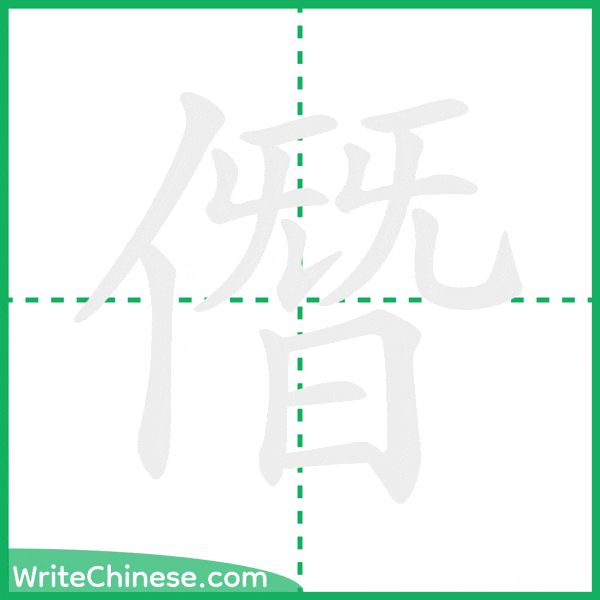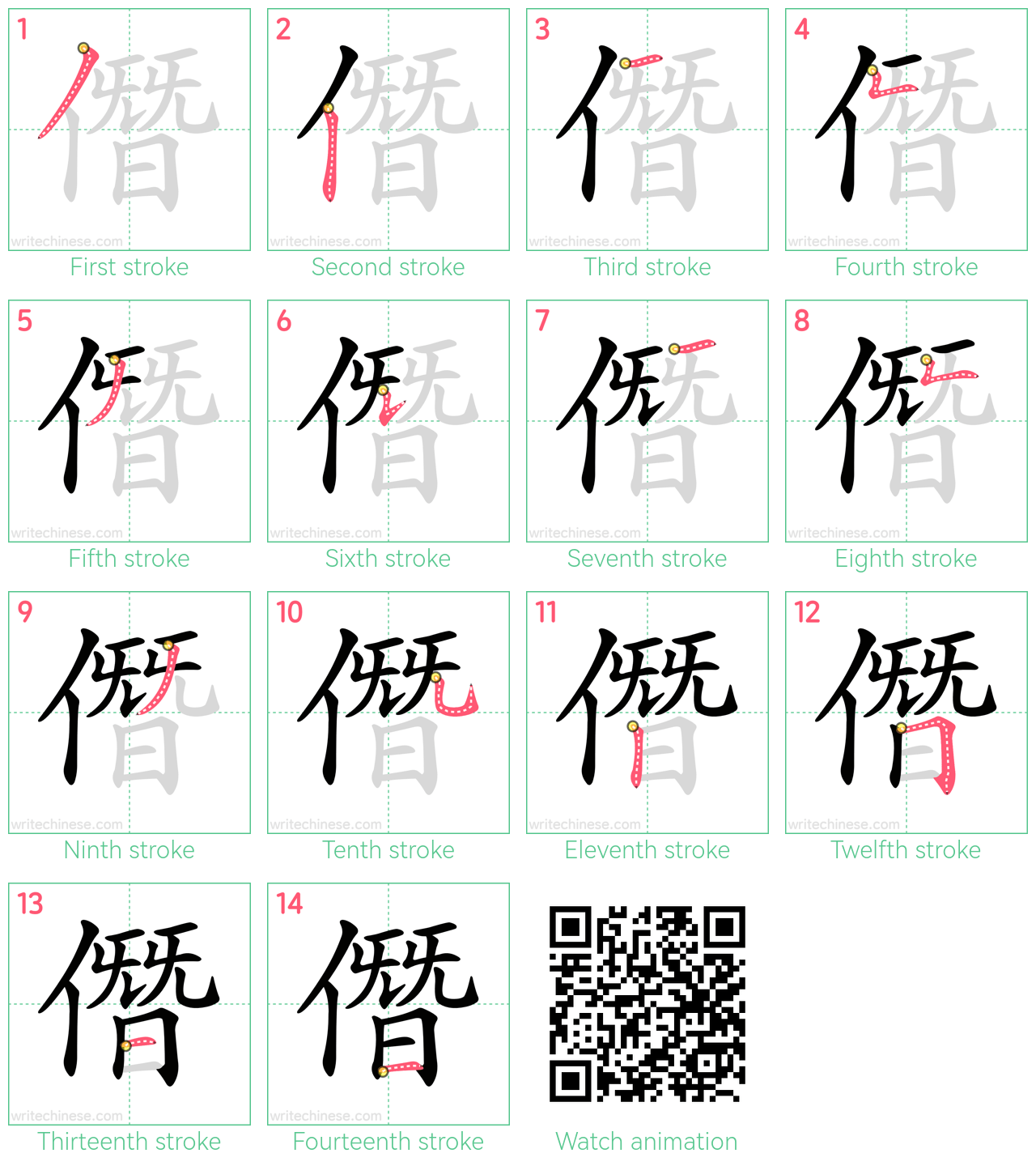How to write 僭
Animated Stroke Order of 僭
Learn to write the Chinese character "僭" by watching the stroke order animation of "僭".

Stroke by Stroke: 僭 Writing Order
Master the Chinese character '僭' stroke by stroke with visual step-by-step instructions.

Follow the Calligraphy Master: Writing '僭' Step-by-Step
Learn the proper way to write the Chinese character '僭' through a video tutorial with a calligraphy teacher. Follow the Calligraphy Master's Step-by-Step Guide to Write the Chinese Character '僭'. You can download the printable handwriting worksheets below and practice writing together with pen and paper.
Free Printable 僭 Handwriting Practice Worksheets
Meaning of 僭
Same Pronunciation Characters
Same Radical Characters
- 亿
- 什
- 仁
- 仅
- 仆
- 仇
- 仍
- 仔
- 他
- 仗
- 付
- 仙
- 代
- 仪
- 们
- 仰
- 仲
- 件
- 价
- 任
- 份
- 仿
- 伊
- 伍
- 伏
- 伐
- 休
- 优
- 伙
- 伟
- 传
- 伤
- 伦
- 伪
- 伯
- 估
- 伴
- 伶
- 伸
- 伺
- 似
- 佃
- 但
- 位
- 低
- 住
- 佐
- 佑
- 体
- 何
- 佛
- 作
- 你
- 佣
- 佩
- 佳
- 使
- 侄
- 侈
- 例
- 侍
- 供
- 依
- 侠
- 侣
- 侥
- 侦
- 侧
- 侨
- 侮
- 侯
- 侵
- 便
- 促
- 俄
- 俊
- 俏
- 俐
- 俗
- 俘
- 保
- 信
- 俩
- 俭
- 修
- 俯
- 俱
- 俺
- 倍
- 倒
- 倔
- 倘
- 候
- 倚
- 借
- 倡
- 倦
- 债
- 值
- 倾
- 假
- 偎
- 偏
- 做
- 停
- 健
- 偶
- 偷
- 偿
- 傅
- 傍
- 储
- 催
- 傲
- 傻
- 像
- 僚
- 僧
- 僵
- 僻
- 化
- 仂
- 仃
- 仉
- 仕
- 仞
- 仟
- 仡
- 仨
- 仫
- 仵
- 伉
- 伎
- 伛
- 伢
- 伥
- 伧
- 伫
- 伽
- 佗
- 佚
- 佝
- 佞
- 佟
- 佤
- 佬
- 佯
- 佰
- 佶
- 佻
- 佼
- 佾
- 侃
- 侉
- 侏
- 侑
- 侔
- 侗
- 侩
- 侪
- 侬
- 俅
- 俑
- 俚
- 俟
- 俣
- 俦
- 俨
- 俪
- 俳
- 俸
- 俾
- 倌
- 倏
- 倜
- 倥
- 倨
- 倩
- 倪
- 倬
- 倭
- 偃
- 偈
- 偌
- 偕
- 偬
- 偻
- 偾
- 傀
- 傈
- 傣
- 傥
- 傧
- 傩
- 僖
- 僭
- 僮
- 僳
- 儆
- 儋
- 儡
- 亻
- 仳
- 伄
- 伕
- 伲
- 伾
- 佇
- 佈
- 佉
- 佔
- 佧
- 佴
- 併
- 佽
- 來
- 侶
- 侷
- 係
- 俉
- 俛
- 俜
- 俠
- 倀
- 倆
- 個
- 們
- 倖
- 倞
- 倠
- 倫
- 倮
- 倻
- 偉
- 側
- 偵
- 偽
- 傑
- 傕
- 傖
- 備
- 傚
- 傢
- 傭
- 傯
- 傳
- 債
- 傷
- 傺
- 傾
- 傿
- 僂
- 僅
- 僑
- 僕
- 僥
- 僦
- 僬
- 僱
- 價
- 儀
- 儂
- 億
- 儅
- 儇
- 儈
- 儉
- 儕
- 儘
- 償
- 優
- 儲
- 儷
- 儸
- 儺
- 儻
- 儼


